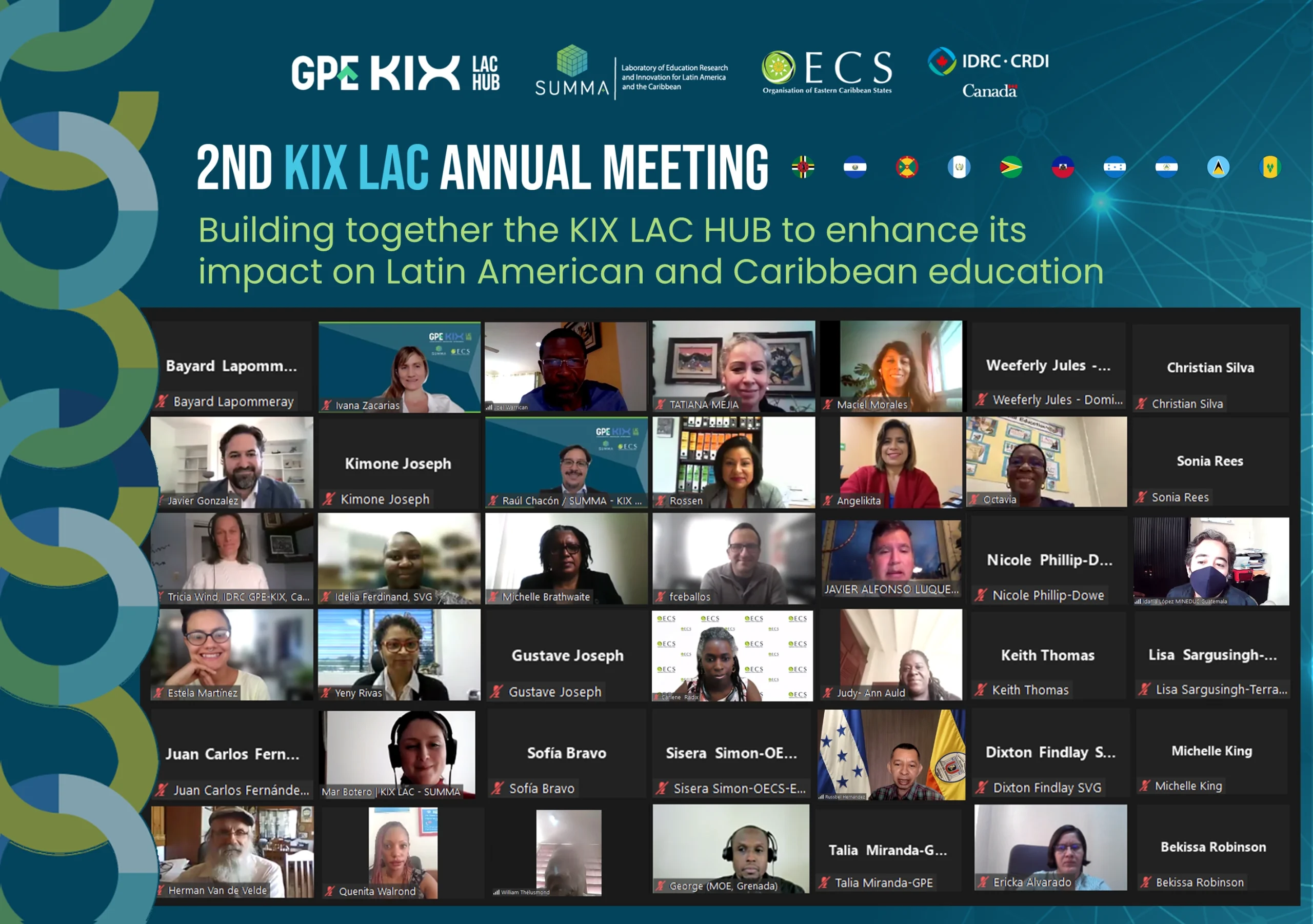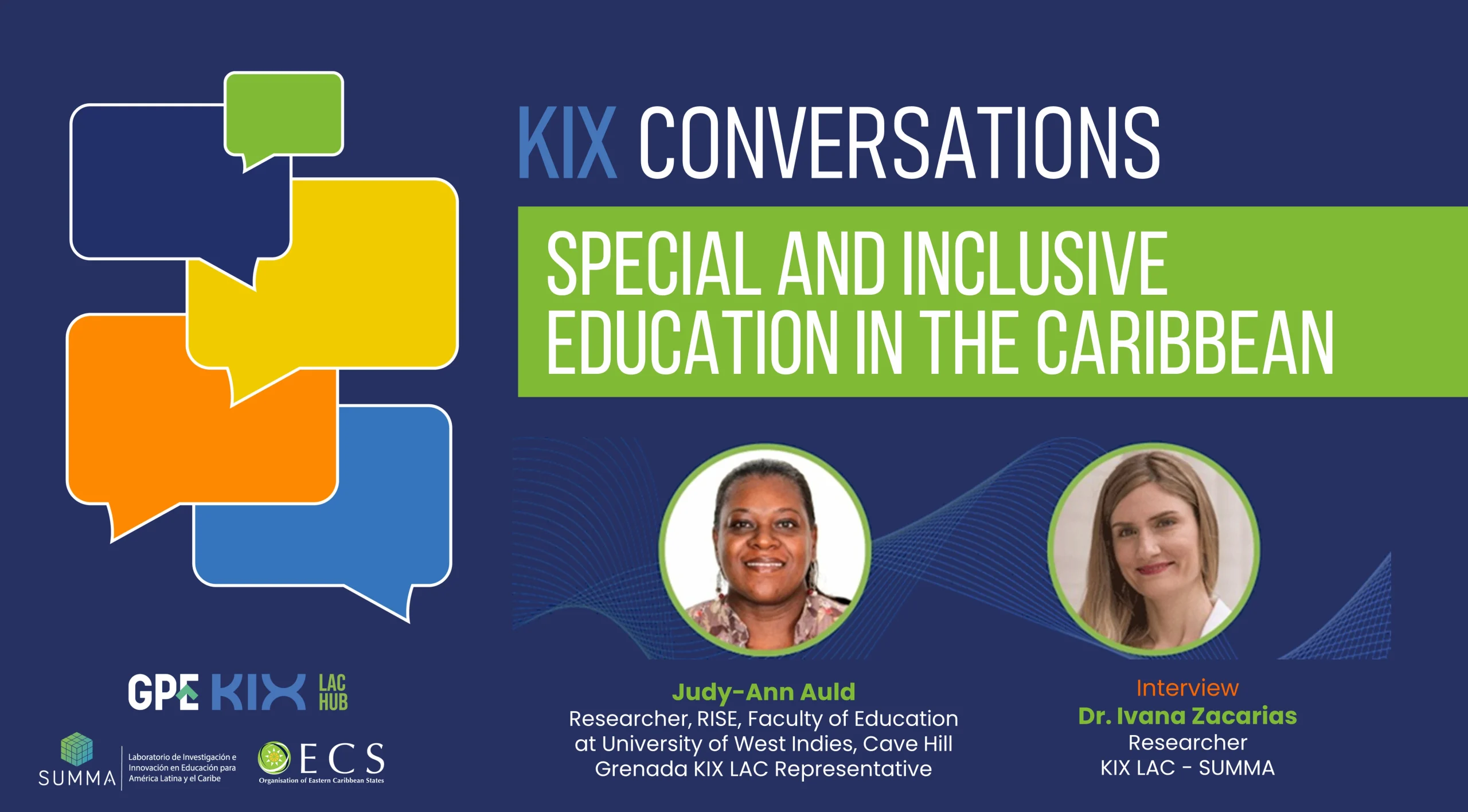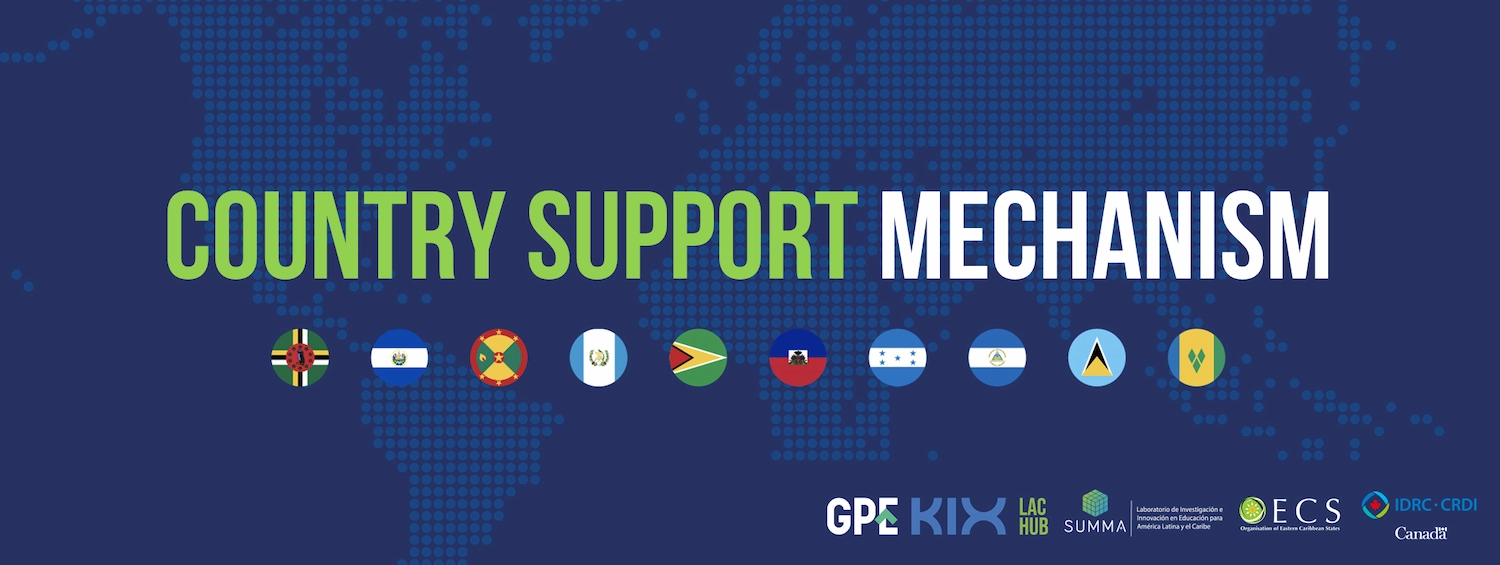KIX LAC Technical Learning Visit: Honduras received a Chilean delegation to continue work on curriculum, evaluation, and educational research.
13 de March de 2025

Share
From February 25 to 28, 2025, and within the framework of a Technical Learning Visit, a delegation from the Chilean Ministry of Education made a trip to Honduras to continue the work together with the Secretariat of Education (SEDUC) of that country. The visit was organized by SUMMA through its KIX LAC Hub, with support from the Global Partnership for Education Knowledge and Innovation Exchange (GPE KIX), in a joint effort with the International Development Research Centre (IDRC), Canada. Its objective was to strengthen dialogue and cooperation on curriculum updating, educational evaluation and research, to share experiences and explore strategies to facilitate the improvement of processes in both countries.
KIX LAC and SUMMA’s Technical Learning Visits are a powerful mechanism that drives educational transformation in Latin America and the Caribbean, creating collaborative networks that inspire and drive concrete actions to improve quality and equity in education.
Since September 2023, the Honduran Ministry of Education has been working collaboratively with Chile to strengthen the technical capacities of its research and curriculum teams. On that date, a delegation led by Secretary Daniel Esponda made a Technical Learning Visit to Chile to learn about relevant educational initiatives and policies, especially in teacher training and curriculum updating. From this experience, links were established and continuity has been given to a cooperation process of a year and a half, focused on defining priorities for curriculum updating and restructuring of the research unit.
Day 1 – Tuesday, February 25
To begin the visit, Raúl Chacón, Director of KIX LAC, presented the work being done by the KIX LAC Center, highlighting its contribution to the generation of knowledge and the strengthening of educational policies, as well as the role of cooperation and learning exchange networks in Latin America and the Caribbean. Regarding the latter, he said: “We know that, from the feedback we have received from different participants in our region, significant learning is generated that can be used in the internal development of the countries. At the same time, we recognize that these are not one-time events, but rather strengthen collaborative relationships that can be permanent over time.”
The day progressed with a presentation by Alana Domínguez, from the General Directorate of Curriculum and Evaluation (DGCE) of the Honduran Ministry of Education, who presented on the structure of the Honduran education system. He explained the organization and levels of the system, as well as the main structural challenges and priorities for improvement in curriculum and research.
Subsequently, Juan Vicente Rodríguez, from the General Directorate of Professional Development of SEDUC Honduras, presented educational indicators and their impact on sector policies, addressing national and international evaluations and strategies to improve the quality of education.
Paulina Lozano, from the Curriculum and Evaluation Unit; and Sebastián Araneda, Director of Studies, both from the Chilean Ministry of Education, presented on the curriculum and educational research structure in Chile and its application in the Honduran context. Lozano said: “In technical terms, it is appreciated that the Curriculum team in Honduras is in a process of updating similar to the one we are in Chile. Transitioning from a bulky curriculum to one that is more prioritized according to the learning generated in the pandemic and the needs of citizenship in the 21st century“. Araneda, for his part, emphasized: “It is not only important the technical dimension in the generation of data […] but also the cultural relevance, the context and how this can effectively serve to improve the lives of all people.” The event was attended by Executive Secretary Alexis Ordoñez, from the National Education Council, who promotes the technical roundtables that discuss public policy in education.
In the afternoon, two working tables were held. The first one analyzed curriculum updating in Honduras and Chile, with an emphasis on competency-based learning, evaluation, teacher training and inter-institutional articulation in curriculum updating. Simultaneously, the second round table explored the organization and management of educational studies in both countries.
Day 2 – Wednesday, February 26
For the second day, the delegation moved to Ojojona, Francisco Morazán, where the day began with the objectives of the Educational Networks in Honduras, their link with research and the implementation of curricular adaptations. With the moderation of José Santos Valeriano, General Coordinator of Educational Networks, and Esthefani Cerrato, from the General Sub-Directorate of Educational Research of Honduras (SDGIE), statistical data, monitoring platforms and examples of school reports were analyzed. Cerrato took the opportunity to comment on the importance of these visits: “Having the opportunity to exchange experiences and learn in-depth about the Chilean education system, allowed us to have a horizon and try to shape a route to where we wanted to take the whole issue of educational research from the General Directorate of Professional Development”.
Subsequently, Belia Aguilar, a teacher from Sabanagrande, together with Paulina Lozano and Sebastián Araneda, from the Ministry of Education of Chile, participated in the session contributing their experience in the process of research, educational policies and curriculum development, as well as strategies to ensure the effective use of data in school improvement.
To close the day, there was a reflection on how the analysis of educational data can strengthen policy decision-making, highlighting the articulation between research, curriculum and evaluation. This last segment included the participation of Suyapa Padilla from the National Council of Education (CONED), and Alexis Barahona from the General Directorate of Professional Development (DGDP).
Day 3 – Thursday, February 27
The last day of work was a recapitulation of previous learning. In this space, led by Judith Barahona from the DGCE and Esthefani Cerrato, from the SDGIE, and attended by Esla Hernández, Director of Educational Modalities, the relationship between teacher training, research, networks and curriculum was highlighted, as well as the expectations on research policy.
Then, the “Chilean Experience: coordination between Curriculum and Educational Research” was presented, addressing how the Curriculum and Evaluation Unit (UCE) and the Center for Studies prioritize research questions and use evidence in curriculum updating.
To close the day, two round tables were held. The first, on the development of education research policies in Honduras, allowed sharing and feedback on the draft policy, discussing its structure, implementation path and strategic priorities. At the same time, the second roundtable addressed the review of the implementation route of the curriculum update.
This new visit of the Chilean Ministry to Honduras reaffirmed the collaboration between the two countries and strengthened the commitment to continue working together on updating the curriculum and strengthening research to improve education in the region.
For those committed to educational transformation in their regions, we encourage you to consider learning visits as a key strategy to drive educational innovation and strengthen collaboration networks.If you are part of one of the KIX LAC countries, express your interest in participating in these enriching visits to contribute to improving education in your context. You can also contact Mar Botero (Coordinator of knowledge mobilization and management of KIX LAC Communities) at mar.botero@summaedu.org.
______________________________________________________________________________________________________________________
Meeting with the Chilean Ambassador to Honduras
The Chile and KIX LAC team was received by Marco Aguayo, Ambassador of Chile in Honduras, to discuss the objectives of the technical visit, the education research policy and the relevance of the use of evidence in decision-making. The Chilean delegation was made up of Sebastián Araneda, Director of the Center for Studies, and Paulina Lozano, in charge of Curriculum Implementation, from the Chilean Ministry of Education. KIX LAC was represented by its Director, Raúl Chacón, the Country Support Officer, Rosa María Moncada, and the Coordinator of Knowledge Mobilization and Community Management, Mar Botero.

Image credit: Chilean Embassy in Honduras

























































































































